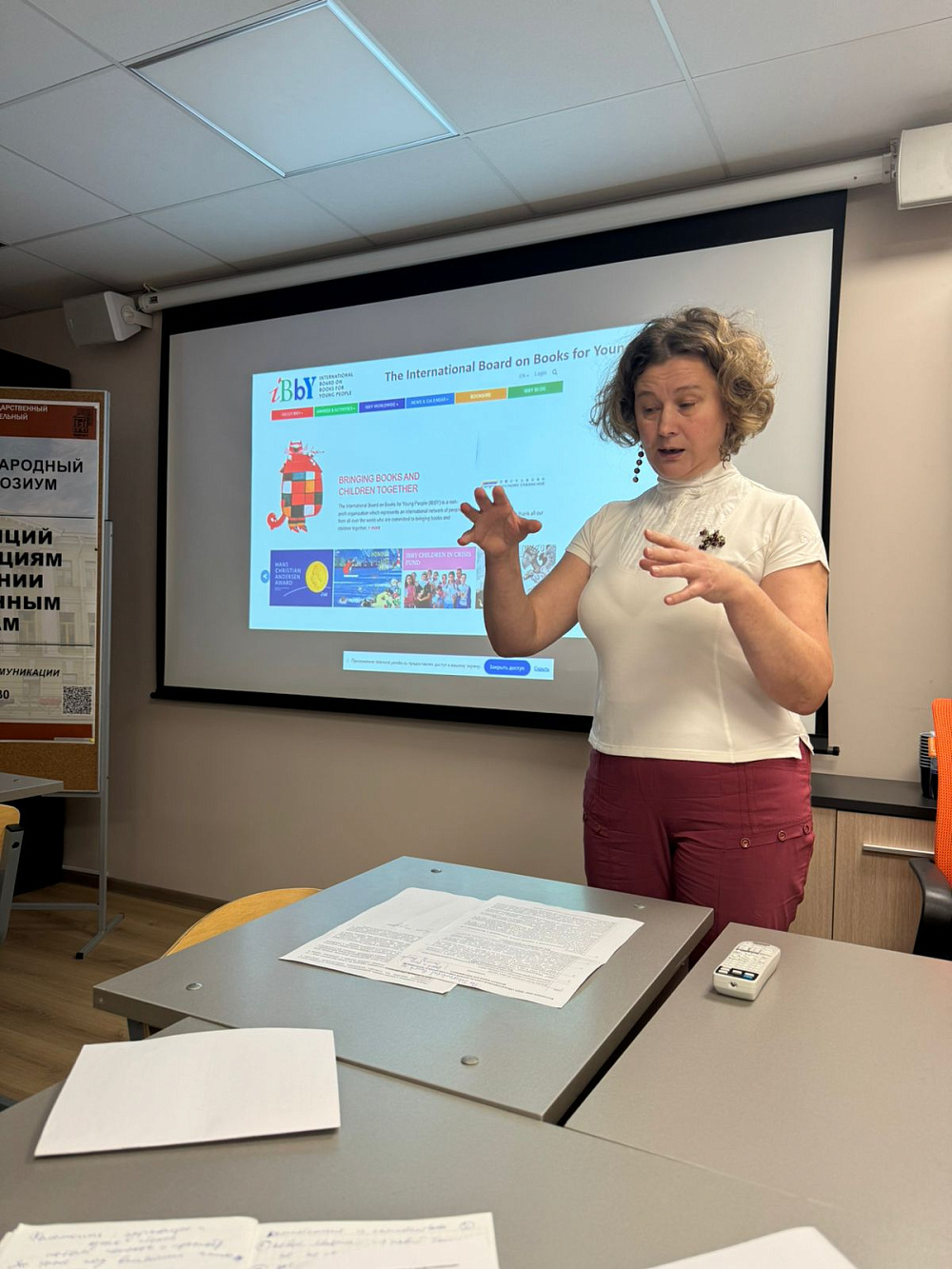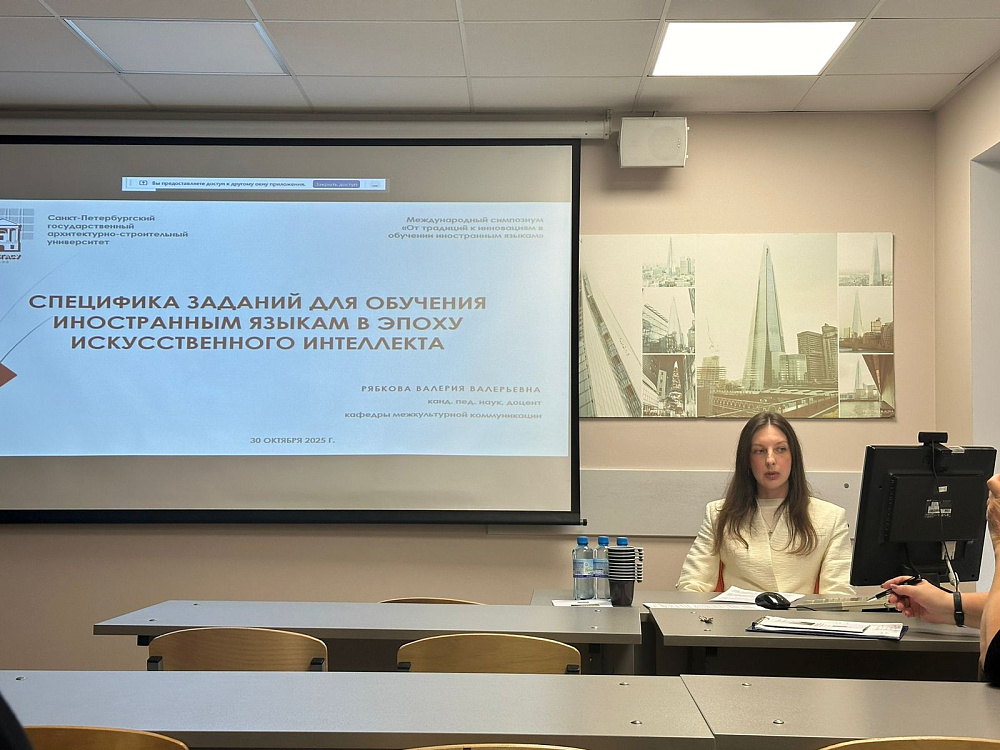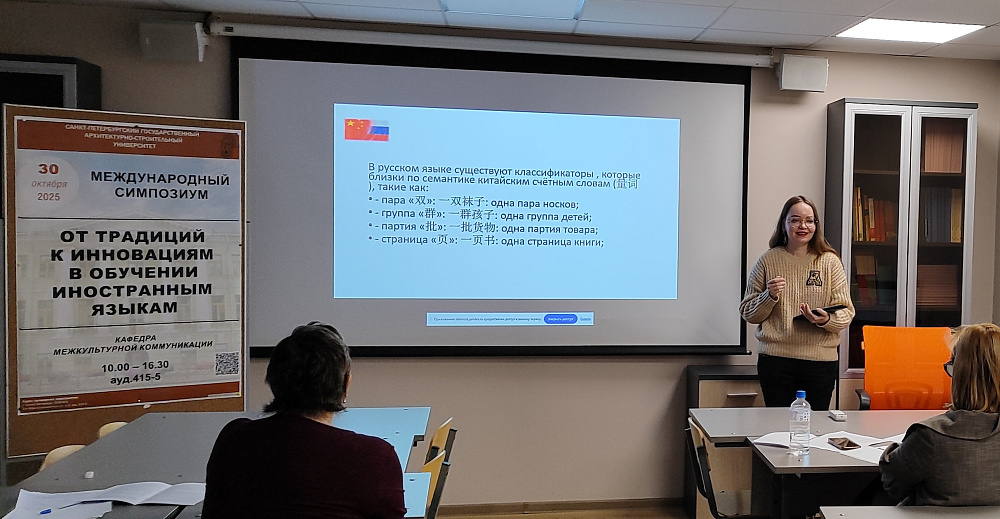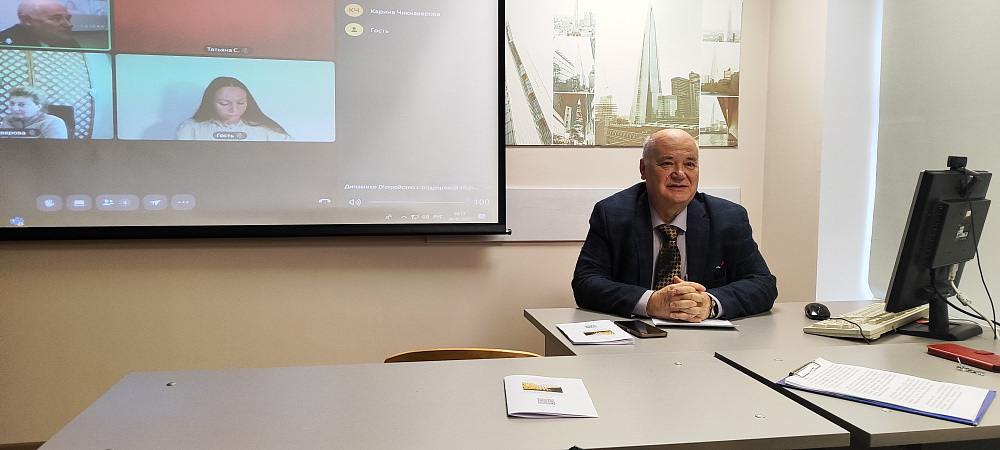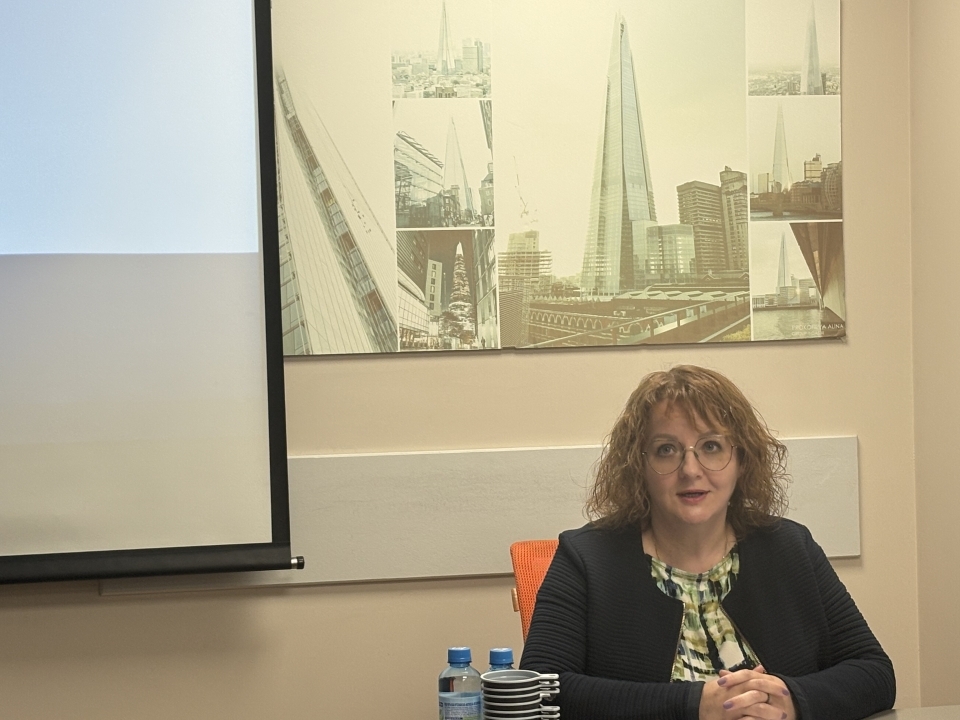On 30 October, SPbGASU hosted the international symposium "From Tradition to Innovation in Foreign Language Teaching". Representatives from six countries participated in the event: the Republic of Belarus, Italy, the People's Republic of China, Kyrgyzstan, Uzbekistan, and Russia. The Russian participants were also diverse, with presentations prepared by authors from Moscow, St Petersburg, Barnaul, Nizhny Novgorod, Omsk, Tomsk, and Cherepovets.
At the symposium the leading scholars and young researchers discussed current issues in language education to achieve intercultural understanding.
Plenary session
Three reports were presented at the plenary session.
Leonid Moskovkin, Professor at the Department of Russian as a Foreign Language and Methods of Teaching at St Petersburg State University, spoke to colleagues about trends in the development of methodological terminology.
Karine Chiknaverova, Professor at the Department of English Language at the Odintsovo branch of the Moscow State Institute of International Relations, presented remotely a report titled "Polysemantic Legal Lexicon. Teaching Problems".
Elena Chirkova, Professor at the SPbGASU Department of Intercultural Communication, spoke about the need for teaching non-verbal communication at the university.
Section "Current issues of teaching Russian language and literature to foreign audiences"
The session on "Current issues of teaching Russian language and literature to foreign audiences" featured presentations from both renowned experts in Russian studies and linguodidactics, as well as young practicing teachers, ensuring a fruitful exchange of experiences. The session was highly productive, combining fundamental research with applied solutions and methodological discoveries. Participants focused on a wide range of topics reflecting the challenges of the modern world.
The audience was particularly interested in the presentations by teachers from the Department of Russian Language at the S. M. Budyonny Military Academy of Communications. In particular, Associate Professor Tatiana Kalugina spoke about the importance of teaching cadets Russian using the example of A. V. Suvorov's personality and catchphrases. Associate Professor Olga Ustinova shared her experience working with an interactive book dedicated to the Great Patriotic War as part of professionally oriented teaching of Russian as a foreign language.
Language learning for specific purposes was also a key focus of the meeting participants. Natalia Orekhova, Associate Professor at the Department of Russian Philology and Russian as a Foreign Language at the Russian State Hydrometeorological University, presented a report on teaching all types of speech skills based on the textbook "Russian as a Foreign Language. Studying Specialized Subjects," which she co-authored.
The important role of classical literature in teaching Russian as a foreign language was highlighted in the presentations by the teachers of the SPbGASU Department of Intercultural Communication. Professor Elena Safronova demonstrated the importance of creative projects based on classical Russian literature. Associate Professor Anastasia Gubaydullina introduced the audience to the IBBY (International Board on Books for Young People) book collection as a valuable resource for teaching Russian as a foreign language.
The practice-oriented presentations by young colleagues, supported by examples from their own in-class teaching, resonated with the audience and stimulated professional debate. In particular, Marina Mizgireva, an Assistant at the SPbGASU Department of Intercultural Communication, presented her methodological development for teaching Russian syntactic phraseological units in pre-university training. Wang Hongyan, a Chinese PhD student at St Petersburg State University, spoke about written assignments within the framework of task-based learning (TBL) as a means of assessing the mastery of Russian negative constructions in Chinese audiences. Ekaterina Parkhomenko, an Assistant at the Department of General and Russian Linguistics and Methods of Teaching Russian as a Foreign Language at Altai State Pedagogical University, presented a repost entitled "Studying Russian Language Classifiers in Russian as a Foreign Language Lessons."
"I'm very grateful to SPbGASU and my home university for the opportunity to participate in the symposium. As a PhD student, it was very important for me to listen to experienced professors and find inspiration for my dissertation," the young professor shared.
During a lively discussion, participants not only identified existing challenges but also proposed specific methodological approaches for addressing them. The meeting concluded by emphasizing the particular value of academic dialogue in consolidating the efforts of researchers and educators in promoting the Russian language and literature abroad.
Section "Linguistic, didactic, and sociocultural aspects of teaching foreign languages at university level"
Teachers of English, French, and Italian participated in the section "Linguistic, didactic, and sociocultural aspects of teaching foreign languages at university level." The session was very rich, addressing issues such as the rationale for using artificial intelligence in foreign language education, developing students' competencies and moral values, and the specifics of translating professional terminology.
It's worth noting that many of the section's participants teach foreign languages for specific (professional) purposes in the fields of law, architecture, construction, forensics, mathematics, pharmaceuticals, and military affairs. The symposium provided a platform for the exchange of valuable experiences, new ideas, and trends in foreign language teaching.
A separate set of presentations was devoted to the important and relevant topic of the role of modern technologies. Valeria Ryabkova, an Associate Professor at the SPbGASU Department of Intercultural Communication, discussed the specifics of modern tasks for teaching foreign languages in the era of artificial intelligence. Anastasia Frolova, an Assistant at the Department of Foreign Languages at St Petersburg Chemical-Pharmaceutical University, and Olga Asonova, a Senior Lecturer at the Department of Foreign Languages at the Mikhailovskaya Military Artillery Academy, shared their experiences using educational mobile apps and platforms. Rosa Comparelli (Tomsk State University) highlighted the promising aspects of teaching Italian via a Telegram channel.
Senior Lecturer Aleksandra Efimova and Associate Professor and Head of the Department of Foreign Languages Grigory Rozhkov (St Petersburg State Chemical-Pharmaceutical University) addressed important issues of developing students' soft skills and spiritual and moral values through the Foreign Language course and intercultural activities. Associate Professor Tatiana Raikina of the Altai Branch of the Russian Presidential Academy of National Economy and Public Administration presented a study on developing cross-cultural competence through foreign language. Maria Chueva, a senior lecturer at Cherepovets State University, discussed the specifics of mathematical monologue speech in English. Svetlana Ryurikova, a Lecturer and Assistant at the SPbGASU Department of Intercultural Communication, presented the specifics of translating architectural and construction terminology. Galina Torokhova, an Associate Professor at Cherepovets State University, spoke about the history of French grammars.
Svetlana Sharifullina, Associate Professor at the Department of Media Communications and Advertising at the St Petersburg University of Management Technologies and Economics, presented at the symposium the results of a research project she conducted with her son, Rinat Sharifullin, who is studying at the University of Helsinki (Finland). In her paper, "The problem of preserving cultural heritage: on an unknown interview with foreign journalists by writer Vasily Belov," she described a "Finnish interview" with the renowned figure of "village prose," accidentally discovered on the website of a center for researching the writer's work. The researchers set out to find the original source, and through persistence and perseverance, they succeeded: they discovered that the material had been published in the magazine "Suomen Kuvalehti" in 1984. From this interview, readers learn about the writer's views on contemporary European values, the problem of preserving his native language, and other crucial contemporary issues.





